Sheffield Doc/Fest 10: LOST WARRIOR: Fighting For The Family (& Interviews With Directors)
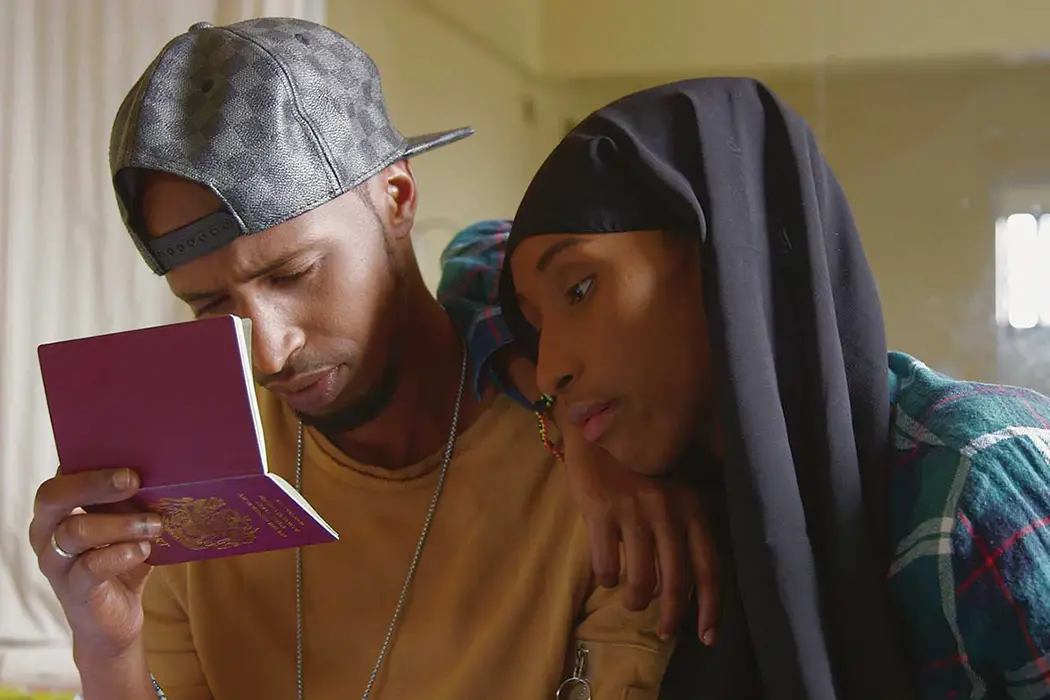
Musanna Ahmed is a freelance film critic writing for Film…
The most common pieces of wisdom shared by documentary filmmakers revolve around finding characters. It’s typical, but no less useful, advice to find characters who aren’t morally black-and-white, who challenge your worldview, who are in an extraordinary situation. For filmmakers Søren Steen Jespersen and Nasib Farah, they found a strong pair in ex-Al-Shabaab fighter Mohammed and his 18-year-old wife Fatih for their fascinating film Lost Warrior.
Lost Warrior
The England-born couple are of Somalian heritage but were bred in Britain. At 19 years old, Mohammed was arrested for criminal activity and became radicalised in prison. Deportation to Somalia sent him on the path to Al-Shabaab. Once he had a change of heart after realising the organisation’s violent intentions, he fled. Now a deserter in Mogadishu, he can’t return to the UK and has no legal status in Somalia. No matter where they’re originally from, the Home Office refuses to allow any foreign fighter to enter the country – not even for prosecution. Fathi is also the mother to their child, a little boy called Yassir, who Mohammed has never met.
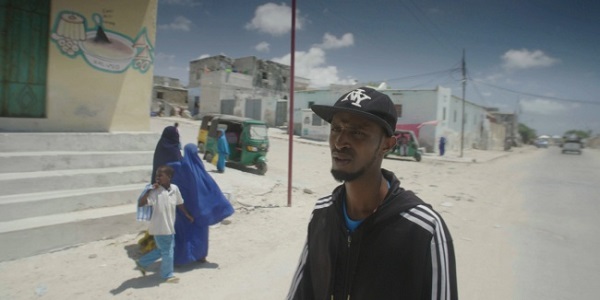
Lost Warrior presents a dilemma for those watching – does Mohammed deserve our sympathy for the difficult situation he’s in or should we feel nothing for an individual who joined Al-Shabaab in the first place? For Jespersen and Farah, the best way to understand Mohammed (and Fathi) is to let them express themselves through their own words and actions by being purely observational in their filmmaking. We see the two fighting, sometimes verbally, to keep their family together in the midst of this ordeal. Luckily, Fathi can travel in and out of Somalia but Mohammed is a refugee in his own homeland. The filmmakers know the importance of giving the couple a voice if the Home Office, or anyone else, refuses to listen.
The challenges for Fathi not only revolve around being a young mother and separated from her husband but also a feeling of displacement in England. Living in a diverse neighbourhood in East London, she’s subject to racial abuse and prejudices, evidenced in a scene where a woman on the street shouts for her to go back to her own country. Neither Mohammed nor Fathi can be defined by their ethnicity of nationality. These parallels stress the point of belonging and invite sympathy from us – some of us may not realise how such instances aren’t uncommon for people who look and dress like Fathi.
The co-directors’ immediate access to Mohammed and Fathi’s lives is intimate and they do a sterling job of slimming down both characters’ stories to a lean 82 minutes. There are no obvious answers by the end of it all. There are simply two things: hard truths about what happens when one makes a bad decision and has to reckon with it, and broken misconceptions on foreign fighters and their sincerity for wanting to leave that life behind. Lost Warrior dares to challenge viewers on ideas of rehabilitation and forgiveness through its compelling case study of a young family separated by a cultural identity crisis.
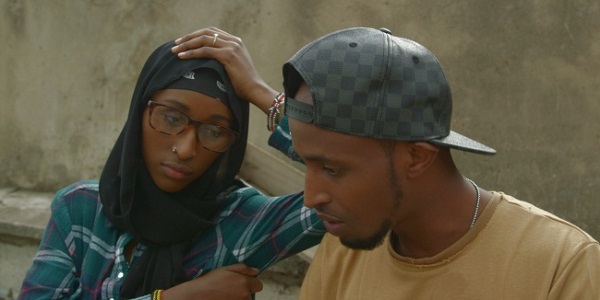
Interview with Søren Steen Jespersen and Nasib Farah
I caught up with the filmmakers of Lost Warrior during the festival to talk about the documentary’s themes, reception, and filmmaking challenges.
Musanna Ahmed for Film Inquiry: How did you find this story?
Nasib Farah: We found it during the making of our previous film Warriors from the North so this is a follow-up. We met Mohammed in 2013 and we felt he was a genuinely good guy and we thought to follow him to capture his dilemma.
Søren Steen Jespersen: Also because he was so British. He’s so utterly British in his way of thinking and expressing himself. He’s this guy from London who landed in his ethnic country but he was a stranger to their culture.
As you already had a connection with Mohammed from the previous film, how did you get his wife Fathi on board?
Nasib Farah: He told us that he had a wife and child in London and we asked him if we could go there and meet them. He agreed so went to London and knocked on their door. They were welcoming and agreed to do it as long as we were representing the reality of the family dynamic.
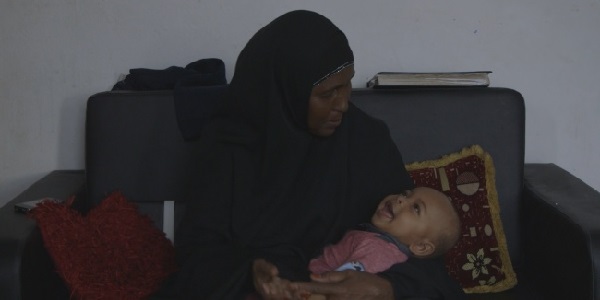
One scene with Fathi that sticks out is when she’s on the street and gets into a spat with someone after being racially abused by them. That was interesting because it created a parallel feeling of displacement for both of them.
Søren Steen Jespersen: Exactly.
It reinforced the film’s theme of an identity crisis. What was your perspective when you witnessed that?
Søren Steen Jespersen: As a white guy living in Denmark, in my environment, it has been quite an existential journey to realise how much racism you get exposed to in other areas. I’ve never considered myself to be racist at all and have tended to think that everybody is like that too, so it was eye-opening when I realised the reality of everyday racism.
Nasib Farah: I grew up in Denmark since I was four years old and to me racism is something that I hear but I ignore or laugh about it and don’t let it get to me.
Søren Steen Jespersen: I hope it’s something the audience will reflect upon because when we see ourselves as humanist and open-minded, we don’t realise how tough it is to be growing up as an ethnic minority in a largely white community.
There will be audiences who may walk away from this film of the mind that “Okay, this guy made this bad choice in the first place, I have no sympathy for his situation.” What would you say to those people?
Søren Steen Jespersen: It’s the reaction we’ve heard a lot in Denmark. Right now, we’re having a discussion about a guy who’s stranded in Turkey. He was an IS fighter in Syria but now he wants to come back and rehabilitate and is willing to take the punishment of the Danish legal system but the mood in Denmark is that he can rot in hell because he’s denounced his Danish citizenship by doing this. I think that’s a very dangerous position to take because we are eroding everything that we are actually fighting for in terms of a democratic justice system that treats everyone equally. He has a Turkish name but if he had a white Danish name, like Tomas, and he had done the same thing, he would be taken back to Denmark and prosecuted after a fair trial. But since his name is Ahmed, they say he can rot in hell. I hope the film can make some of us realise that we’re removing the carpet under our very own arguments about democracy.
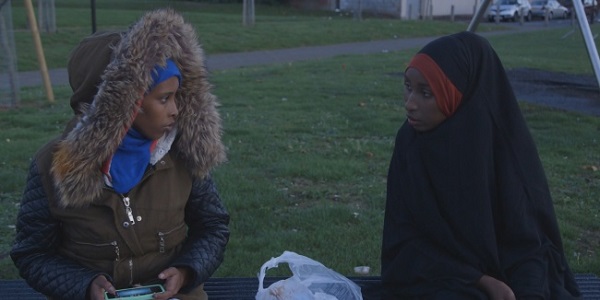
Since the story hinges on a decision by the government, is there intention on having it seen at a federal level?
Søren Steen Jespersen: Yes, we are trying in Denmark but we have a very stubborn right-wing government in Denmark and a very weak opposition. I think the change has to come from below because many politicians just think about what can attract votes. So, if they see that people are starting to think about this topic in a different way, then I have no illusions that the people higher up could see this film and change their mind.
One of the ways in which your film is effective is that it doesn’t have an overt point of view because it’s purely observational. What was behind this creative decision?
Søren Steen Jespersen: It’s important for us that people experience Mohammed and Fathi’s story on an emotional level. That’s the best way to reach people’s hearts. They can identify Mohammed as a frustrated father and Fathi as a frustrated as a young mother in a hopeless position instead of us telling the audience what they should think and how they should perceive what they see on-screen.
What is the ultimate impact you hope for the film to have?
Nasib Farah: I would like for the young people in a similar situation to Mohammed to realise the consequences of the choice they’ve taken or may want to take, especially in regard to family.
Søren Steen Jespersen: Also for those same young people to get a feeling that somebody is listening to them because that can be difficult for them.
What were the filmmaking challenges in shooting the characters over four years?
Søren Steen Jespersen: Obviously one of the major challenges was getting in and out Somalia, security-wise, and shooting in Mogadishu.
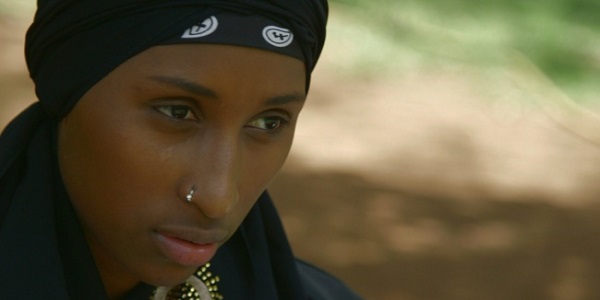
Nasib Farah: Staying over there for a long time we saw that there was active suicide bombers and other attackers so we had to be very careful and not attract too much attention.
Søren Steen Jespersen: And of course it was very expensive to keep going in and out and maintain the level of security and trying to balance that security level with what we could film in terms of getting close to the characters.
Nasib Farah: Especially since you’re white.
Søren Steen Jespersen: [laughs] The cinematographer we had in Mogadishu was as white as me so we both stood out. Nasib and all his friends in Mogadishu took very good care of us. We just had to be obey orders to not get ourselves killed. [laughs]
Considering you transitioned from Warriors from the North to Lost Warrior, can we expect another story set in the same world?
Søren Steen Jespersen: Actually yes but that involves Nasib and Anita (Mathal Hopland), the third director who did a lot of the work in London, who will be making a film that’s basically about family life. How families deal with challenges in European countries and how authorities are more and more in control of their lives. However, now there’s a reaction coming the other way and we’re following that reaction.
Nasib Farah: It’s also about how they have to deal with their kids when they’re powerless in the system, like how Mohammed ended up in Somalia.
Sounds like an expansion of some of the themes in Lost Warrior.
Nasib Farah: Yes.
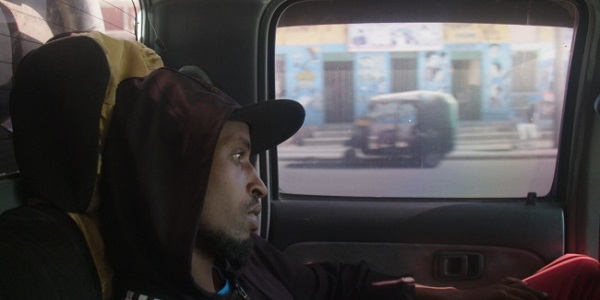
Have you screened Lost Warrior in Somalia?
Søren Steen Jespersen: We haven’t, actually.
Nasib Farah: One thing that we’re thinking of doing is giving people DVD’s of the film like we did before. Mohammed and Fatih have seen the film.
What were their reactions?
Nasib Farah: They were positive.
Søren Steen Jespersen: It’s always strange to see yourself depicted on-screen but they’re very happy about the film. Although, of course, they’re worried about what other people will think, what other Somalians will think. That was also an obstacle for the characters of Warriors from the North – how do we speak about these things without alienating our own community?
I felt that this film was a fresh representation of a certain part of the world. I haven’t seen so many films that humanise people making choices like this and even sympathising with them when they realise the error of their ways. Do you think there’s a lot of misrepresentation of similar people?
Nasib Farah: I do feel that. People always talk about things in black and white and that makes it difficult. I didn’t want to tell a story about good or bad people. I just wanted to give the young people a voice because they’re otherwise voiceless. We need to hear from them to know how they feel and to know what’s happening in our society and our communities.
Film Inquiry would like to thank Søren Steen Jespersen and Nasib Farah for their time and insight.
Doc/Fest 10 is a series of combined review and interview features for ten films seen at the Sheffield International Documentary Festival 2018. You can view the rest of the features by clicking here.
Does content like this matter to you?
Become a Member and support film journalism. Unlock access to all of Film Inquiry`s great articles. Join a community of like-minded readers who are passionate about cinema - get access to our private members Network, give back to independent filmmakers, and more.
Musanna Ahmed is a freelance film critic writing for Film Inquiry, The Movie Waffler and The Upcoming. His taste in film knows no boundaries.













